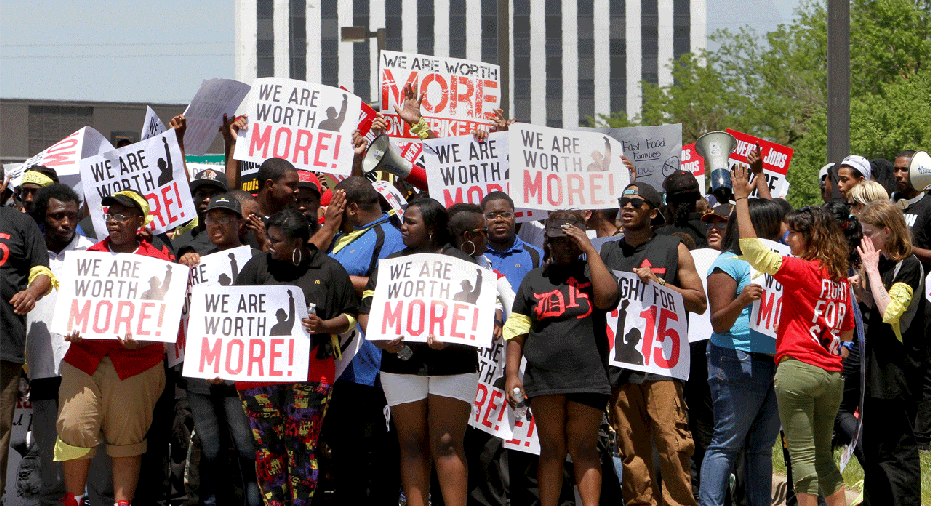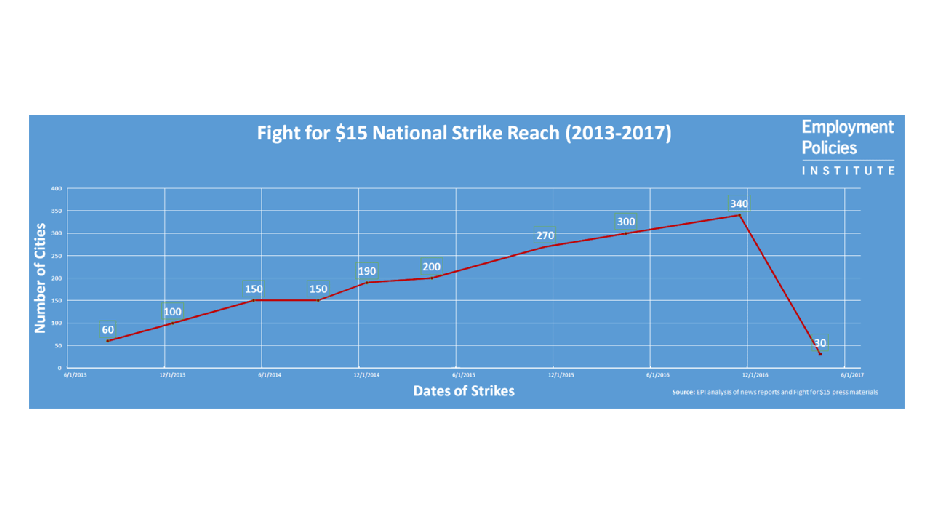Fight for 15 strikes dramatically decline in 2017, new research shows

One campaign to raise the federal minimum wage to $15 per hour, known as the "Fight for 15”, gained national momentum in 2016 but has seen a significant drop-off in strike activity this year, causing critics to question its longevity.
While workers went on strike in more than 600 cities across the United States in 2016, protests have occurred in just 30 cities throughout the first seven months of 2017, according to an analysis by the Employment Policy Institute – a think tank that opposes the movement to raise the federal minimum wage. The national reach of the group’s sponsored strikes are at the lowest rate since 2013, when they occurred in 60 U.S. cities. Between August 2013 and November 2016, the number of Fight for 15 events were on a nearly steady upward trajectory, before taking a sharp nosedive in 2017, the EPI analysis shows.

“[What we’re seeing is] not a slight cutback [in events], but almost like a fall off a cliff,” Michael Saltsman, EPI managing director, told FOX Business.
The Fight for 15 movement, which has received a lot of cash from the Service Employees International Union (SEIU), seems to be less of a priority for the group this year as well, Saltsman said. In the wake of last year’s election SEIU was expected to cut funding to the Fight for 15 by 30%, according to Bloomberg.
“The funding cutbacks seem to be reflected in the strike activity that the Fight for 15 has engaged in. Those strikes are expensive to do,” he said, adding the SEIU wouldn’t have cut back funding levels had the Fight for 15 yielded benefits.
Spokespersons from the Fight for 15 and the SEIU did not return FOX Business’ requests for comment.
However, some aren’t convinced the decline in protest volume or funding levels are suggestive of the Fight for 15 movement’s waning significance. In fact, David Madland, senior fellow at the Center for American Progress, believes the movement is “as strong or stronger than ever.”
“I think all the evidence that I see, whether looking at the press coverage or the political reaction, is the Fight for 15 seems to have as much, or more, energy,” Madland told FOX Business. “It’s dominating how workers think about what they should get for wages and how politicians in a lot of cities and states think about workplace policies.”
The minimum wage hike has been a divisive issue across the country. It even caused divisions within the Democratic Party throughout the 2016 election cycle, with Bernie Sanders pushing for a 15 minimum wage, while Hillary Clinton appeared to waffle between $12 and $15. California and New York have approved a gradual increase in state minimum wage to $15 per hour, among a host of cities including Seattle and D.C.
Republicans, on the other hand, have argued that increasing the federal minimum wage could drive down hiring incentives and result in a loss of job opportunities.



















